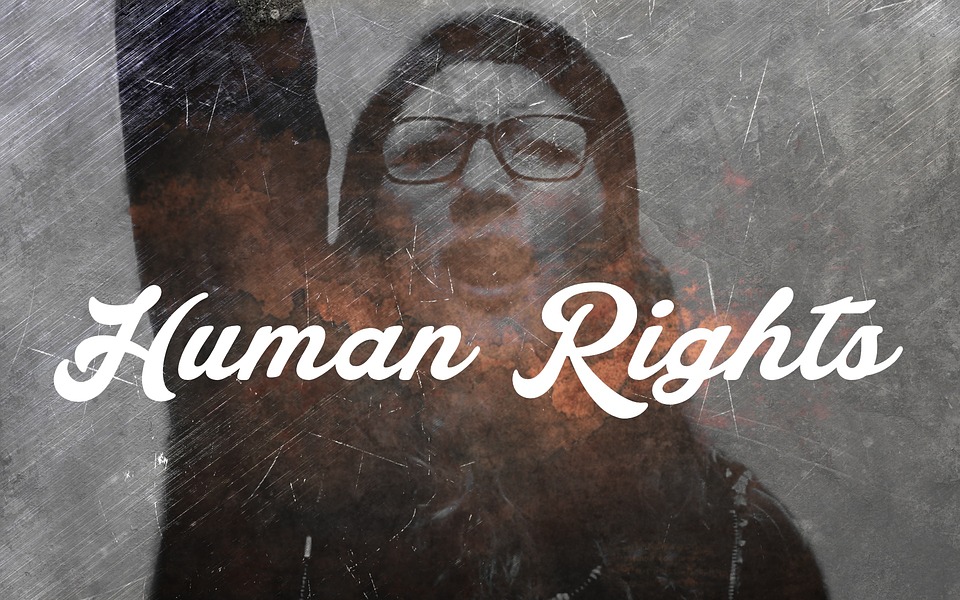Since the 2017 UN Report of the Special Rapporteur on the right of everyone to the enjoyment of the highest attainable standard of physical and mental health, an ongoing debate has erupted as scholars and policy-makers discuss the integration of a rights-based approach to mental health policy and practice. The UN report (see MIA coverage here) called attention to human rights abuses, power imbalances, and an overreliance on biomedical conceptualizations of mental health that lead to those seeking help to be harmed or neglected.
Responses to this report, published in the Australian & New Zealand Journal of Psychiatry, have varied, manifesting in a recent back and forth between those supporting and those countering its message. Some stand by the UN report, arguing that the proposal of a human rights framework in mental health would be instrumental toward providing high-quality mental health support that is accessible and protective of rights to autonomy, health, life, and social inclusion.

Proponents of the rights-based focus in mental health policy and practice, including Gill (2018) and Cosgrove and Jureidini (2019), call attention to the social determinants of health, such as poverty and systems of oppression, as a counter to an exclusively biomedical understanding of individuals’ mental health. Further, they choose to focus on the “global burden of obstacles”—the impediments people face as they endeavor to attain health and receive quality care—rather than the “global burden of disease” discourse.
They argue that focusing on the burden of disease promotes a narrow view of health. It positions neurological “diseases,” such as depression and anxiety, as the primary objects requiring action and amelioration, namely in the form of increased access to psychiatric services. As a result, this focus obscures attention to structural impediments and determinants of health that might accompany and facilitate psychiatric intervention.
Dr. Neeraj Gill writes in support of the rights-based approach:
“It is imperative for the profession of psychiatry to adopt human rights discourse into its training, practice, and language, to champion the goals of mental health promotion and advocacy.”
Gill highlights the importance of the Convention on the Rights of Persons with Disabilities (CRPD, available here), which has forwarded these aims. The CRPD represented the inclusion of people with disabilities in international human rights law. Gill explains how the disability framework is applied to psychological distress:
“The term disability (as against disorder/illness) signifies a social model wherein disability results from interactions between the person with impairment and environmental barriers that hinder his or her full and effective participation in society.”
Gill goes on to describe how this framing constitutes a rethinking that aligns with a rights-based approach:
“The CRPD marks a paradigm shift in the understanding of and attitudes towards disability, by changing the status of a person with a disability from a passive recipient of care to an active subject with rights.”
On the other side of the debate stand those who claim that the UN Report promotes an “anti-psychiatry” perspective that undermines and devalues the legitimacy of medical psychiatry. Dharmawardene and Menkes, for instance, contend that the report’s expression of “manifest bias” against the field compromises an effective response to the “vast global burden of untreated mental illness.”
Although they address that the UN Report “properly draws attention to the pernicious problem of human rights abuses of the mentally ill,” they also write that “the Report also makes a number of assertions that undermine its own stated aim of optimizing mental health outcomes around the world.” They write that the UN “report repeatedly challenges the biomedical model and, remarkably, appears to regard it as a primary cause of human rights abuse faced by the mentally ill.”
Because of this, they take the position that the UN has failed to provide appropriate leadership, writing that the “Special Rapporteur’s Report fails to provide the balance and leadership required to address the vast global burden of untreated mental illness.”
Dr. Lisa Cosgrove and Dr. Jon Jureidini just recently responded in a thorough manner to the critiques laid out by Dharmawardene and Menkes, which they viewed as unnecessarily polarizing. They argue that numerous straw man arguments were made within the response and go on to clarify the ways in which claims made in the Report were conflated and misrepresented by Dharmawardene and Menkes.
Ultimately, Cosgrove and Jureidini caution against framing questioning and critique of the psychiatry field as an anti-psychiatry stance. They write:
“Positioning those who ask challenging questions about ‘scaling up’ mental health efforts as anti-psychiatry risks further polarizing an already contentious debate about the allocation of resources and undermines an important opportunity for constructive dialogue on areas of disagreement.”
Cosgrove and Jureidini underscore that the leadership demonstrated by the UN represents an ideal and balanced approach to constructively reforming psychiatry, not undermining it. In particular, they argue that the Report was neither anti-psychiatry nor anti-medication, but rather, promoted an evidence-based approach, consistent with incorporating indigenous knowledge and acknowledgment of social determinants of health, in an effort to prioritize human rights and the removal of obstacles to health.
Throughout their response, Cosgrove and Jureidini provide evidence from the original report, as well as additional evidence, to demonstrate how Dharmawardene and Menkes may have misrepresented complex issues. For example, they take a closer look at the epidemiological data supporting the global burden of disease estimates, arguing for a nuanced and critical approach before allocating scarce resources to scaling up psychiatric interventions.
Overall, they conclude that “. . .Genuine advocacy for a human rights discourse in mental health requires sustained efforts to facilitate difficult dialogues and avoid further polarization.”
****
Gill, N. S. (2018). Human rights framework: An ethical imperative for psychiatry. The Australian and New Zealand journal of psychiatry, 53 (1). 8-10
Dharmawardene, V., & Menkes, D. B. (2018). Responding to the UN Special Rapporteur’s anti-psychiatry bias. The Australian and New Zealand journal of psychiatry, 4867418818359-4867418818359.
Cosgrove, L., & Jureidini, J. (2019). Why a rights-based approach is not anti-psychiatry. The Australian and New Zealand journal of psychiatry, 4867419833450.















As long as people believe in random mutations, psychiatry will remain punitive.
Report comment
Dharmawardene and Menkes need to take a closer look at the “vast global burden” created by “iatrogrenic damage” directly attributable to “mental health treatment”. The “response”, it would seem, may be more injurious than the “compromise”.
Funny how antipsychiatry has become the bogeyman here. Were I looking for an apt parallel, it might be with communism during the McCarthy era. No surprises. The customary scapegoat’s defender, of course, must also be turned into a scapegoat.
Report comment
It’s sad that rebuttals of human rights abuses in psychiatry are mislabeled as antipsychiatry viewpoints. The antipsychiatry position that psychiatry is an illegitimate and unscientific branch of medicine stands on its own and does not need to be propped up with arguments based solely on human rights or self-determination, although those are important issues.
Psychiatry has always been a branch of law enforcement with made up diagnoses based on spurious groupings of behaviors in search of scientific legitimacy that has never been produced and replicated in the medical sphere. Psychiatry has received the majority of its legitimacy through its effective use as a political football, by either marginalizing the “dangerously insane” or calling forced treatment compassionate care. And it’s close association with its parent, the pharmaceutical industry, has exposed the fraud well enough for those paying attention. Profiting off of human distress is in fact an extremely lucrative business model, and we have been propagandized to believe that the distress we’re feeling is evidence of pathology and that the manifestations of such distress can be medicated away.
The fact that human rights abuses occur in psychiatry is only one reason to be antipsychiatry. The fact that psychiatry is a tool of law enforcement masquerading as a legitimate branch of medicine is what should be the real focus of those who would otherwise accept the need for places like Soteria House and programs like Open Dialogue.
Report comment
Seriously, I predict this getting angry and fighting those asking them for humane treatment will blow up in these psychiatric head honchos’ butts. Or faces…whichever.
Saying you oppose human rights is not the best PR. No other (legitimate) medical branch could get away with it.
And that Dr. Torrey is why there’s an anti-psychiatry movement. Cardiologists aren’t actively opposing human rights for heart patients. 🙂
Report comment
If opposing human rights abuses is labeled “antipsychiatry” (in its most pejorative sense), doesn’t that suggest that psychiatry is in favor of human rights abuses, and that to oppose such abuses is to oppose the mainstream psychiatric system?
Report comment
I think so, Steve.
“The CRPD marks a paradigm shift in the understanding of and attitudes towards disability, by changing the status of a person with a disability from a passive recipient of care to an active subject with rights.”
How, in a country where “all people are created as equal, with certain inalienable rights,” did that paradigm of care ever even become legal in the first place? (Money talks.)
And the way the current psychiatric paradigm functions is the “mental health” workers have been given the right to play “judge, jury, and executioner” to all people, outside of the rule of law. Thus eliminating the rule of law in America.
The “mental health” industries, as they currently function, are extraordinarily un- and even anti-American. But the DSM based “mental health” system was set up by the globalist banksters. And it is supported 100% by the child rape covering up mainstream religions, who own the hospitals.
So it’s not all that surprising to anyone who was not miseducated by those globalist bankster families. Banking families who own and direct our education system, who deluded millions into believing in the anti-American DSM “mental health system.” Especially if one has researched history and understands the goals and “delusions of grandeur” belief systems of the globalist banking families, who miseducated all our DSM deluded “mental health professionals.”
Follow the money. Shame on “Rockefeller medicine,” the war mongering and profiteering Nazi Bushes, the Rothschild’s, and all other globalist banking families, who have set up satanic systems within America, to destroy America from within.
Report comment
Well said Kinderspirit.
Both positions continue to omit/obscure the lie that “mental health/illness” is an illusion to begin with and as such the rights based approach to supporting medical mythology, is nothing more than a different color of lipstick on the same pig.
Indeed Steve, the flogging will continue (denial of access to the SDOH that create real human health) until acceptance of the lies and abuses improves.
Report comment
The “position that psychiatry is an illegitimate and unscientific branch of medicine” (i.e. non-medicine) makes it sound like a charge of quackery is being made against the profession to me, and that, in fact, is what I would have say psychiatry is, quackery. “Evidence based” quackery mind you.
Lobotomy has been replaced by neuroleptics. Right, and the average age of a mental patient at death dives to about 52 years of age. Take a good look. Neuroleptics, benzos, and SSRI antidepressants? See any wonder drugs there? Nope? Me neither. Instead one form of quackery, chemical doping, has replaced another, surgical brain mutilation.
Talking about mental patient (AKA consumer/user) rights is like talking about slave rights, and we know the rights of a 3/5 human being can’t be the same as the rights of a considered 100 % human being. Obviously, it’s human rights we need to be discussing here. If anybody ever says rights without it being qualified by human, somebody has to straighten them out.
Report comment
Frank, I think human rights are an important issue but I think that they can be a distraction from the facts of what is really happening. We have more “mental health” care now than at any time in the history of civilization, and yet the suicide rate is the highest it’s been in 40 years and is in fact so high that it’s contributing to the lowering of life expectancy. And yet we keep being told that the core problem we’re facing is a lack of comprehensive “mental health” care and if we just get MUCH MORE of what we’re doing, the result of what we’re doing will somehow be better and somehow not produce MUCH MORE of the harm it currently produces.
I know you and I don’t agree on a lot politically, but I am sure we agree that continuing more of the same isn’t fixing the core issues affecting humanity.
Judi got at the core of it by bringing up SDOH (social determinants of health). At the root of that is what forms my anticapitalist position, and that it is the extreme level of unhealthy competition and hoarding of resources at the core of capitalism that is the underlying problem plaguing humanity at this point. (Look at what the World Bank has done to developing countries for a real shocking view of how capitalism traps people into cycle of debt bondage. We are not free as animals should be.)
Report comment
“Great Scott! What’s the world coming to? Must psychiatrists treat their test subjects humanely? How outrageous!
“What’s next? Cancer patients claiming the right to refuse unlimited rounds of chemo on the spurious grounds the cancer specialist can’t prove they have leukemia?
“By George, this is unsettling! How’s an honest-to-gosh science guy in a lab coat supposed to make monthly yacht payments with all this nonsense about human rights, ethics and other anti-science stuff?
‘Pardon me while I go puff up like a blowfish.”
Thus spake Dr. Ariel Castle at an APA awards banquet.
Report comment
This is really an “April Fool’s” article, right?
Since when has psychiatry or the “mental health field” cared one bit for human rights?
Report comment
“Human rights” and “mental health” are two terms that cannot be properly used together in the same sentence; they are contradictions in terms. To embrace one is to eschew the other.
Report comment
Challenging the biomedical model is not anti-psychiatry http://criticalpsychiatry.blogspot.com/2019/04/challenging-biomedical-model-is-not.html
Report comment
Thanks Dr. Double. I think Oldhead would agree.
But it does challenge the current model.
Report comment
Thank you for this important discussion, one that is central to the push for a change away from medical intervention in psychological distress. Human rights law is ignored constantly by psychiatry here in NZ and there is not a single place one can go to get accountability for this, even though NZ is has ratified the CRPD Optional Protocol. Someone said to me that even if NZ Mental Health Law was brought into line with Human Rights it wouldn’t change clinical practice, (they are a law unto themselves). So if psychiatry is unwilling to acknowledge iatrogenic harm, and critique of this is labelled anti psychiatry I have to question what power the International CRPD really has to bring a country to account for abuses to its citizens? Whoever has drummed up this term ‘anti psychiatry’ is only doing so to malign those that point out the harm caused. I see it as the same process behind the term ‘anti-vax’ which is being used as a powerful vilification of anyone who questions the safety of vaccinations.
Report comment
The true enemies of science are those who use “anti science” and “X denier” as political buzzwords to silence dissent. How is that any better than prosecuting Galileo for his theory of the heliocentric universe?
“Geocentric Denier!”
Report comment